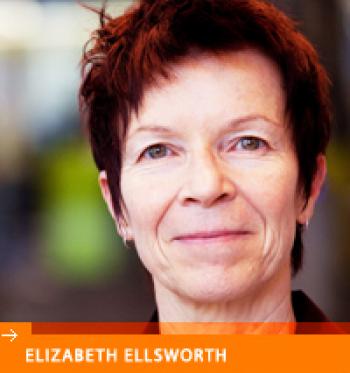Serendip is an independent site partnering with faculty at multiple colleges and universities around the world. Happy exploring!
Crafting Sustainable Teaching Practices
 |
Anne Dalke and Jody Cohen |
I. Beginning in Silence....
II. Write for a bit about what you see/think/feel when you look @ these two images ....

III. Look again: how might these images be resonant with teaching--or being a teacher in the broadest sense? Write about this for a bit longer....
IV. Introducing ourselves: name, location, one phrase from your writing:
what did you see/think/feel? In particular, what did the question about
being a "fool" and being a "teacher" evoke for you?
Friends said
* the fool has a center of gravity--he's not going off the cliff
* pay attention
* free spirit
* travel lightly
* attend-- to both your self and your surroundings
* this is reminiscent of an old image of flappers, dancing on the edge of a tall building...
* and it evokes the story of a kindergarten teacher, whose wrap-around skirt came off during class (and who refused to call on the student, wildly waving his hand, who tried to tell her what had happened!)
V. Anne's story of feeling like a fool in the classroom: it's about the fear that unpredictability feeds. I was co-teaching a class on class, w/ Jody, two student consultants, and a partner high school classroom in the city--and then my daughter came in to talk about being a "teenage millionaire" --and outed my own class position.
VI. Jody's reading of Anne's story, through some ideas of Elizabeth Ellsworth, who writes about films and classrooms. Who do we think we are addressing when we teach? We probably share a number of liberal assumptions about the power of dialogue, about the capacity for people to speak, listen and understand each other, as the basis for a democratic classroom. Ellsworth argues that the idea of dialogue ignores all the hopes and fears present in the classroom, that are usually not named. Dialogue forces participation on one level, while much else is going on, on another one. She discusses films like Shoah as revealing these dimensions, in refusing continuity and closure. She suggests aiming instead for those usually unexpressed--even unrecognized--feelings, thoughts, emotions, events.
In her story, Anne found herself, like the fool @ the edge of the cliff, scared and vulnerable. The story is about teaching as being really willing--deliberate--about taking the risk of teaching "@ the edge," uncertain what might come, inviting what might emerge.
|
|
theorizes teaching as not just "unrepeatable" but actually 'undecidable' and even ‘impossible.’ This is because as teachers we imagine that we know who we are and who our students are, and so we can 'teach' them or at least provoke them into learning what we think they need to know. On the other hand, both we and our students are always filled with unconscious intentions, hopes, desires, fears... and so the classroom is full of these 'Other' presences. Dialogue--The Way to create and enact a democratic space in and beyond classrooms--is likewise impossible, at least as we usually conceive it. What if instead, teaching (like psychoanalysis) seeks to address the 'third space' where resides the unconscious of teachers as well as students? Then each instant of teaching is ‘undecidable’ and 'unrepeatable.’ It cannot be copied, sold or exchanged -- it's ‘worthless’ to the economy of educational accountability." |
"unrepeatable"..."cannot be copied"...
"worthless to the economy of educational accountability"...
this doesn't sound sustainable....
and this is a session about ‘sustainable teaching practices.'
VI. Anne: Let's pause and talk about what "sustainability" means to us.
The call for this conference said that "It is unclear how many colleges and
universities will prove sustainable. Sustaining higher education institutions
in these times challenges .. our mission as Friends institutions and as
Friendly educators....."
Last night, Tom Hamm opened his talk about "planning the future"
with an anecdote about the dangers of doing so. And he ended w/
the story of a "wild card" that interrupted all the planning that had
been done @ Earlham.
Given those dangers, and difficulties...
what does the word "sustainability" mean and imply for you?
Friends said,
* do-able...and you can keep on doing it
* doesn't replete resources
* possibly/potentially renewing
* reversing entropy
* non-depleting
* life-giving
* sustenance.
We noted the theme of energy: running down in a closed system
("the infinite needs of the community"), yet entering in from an open one...
In those terms, do you feel that your teaching practices are "sustainable"?
(We sometimes think that ours--especially when we co-teach--are not...)
Alternatively: are there specific times when your teaching practice--
teaching writ broadly as the work you do in education--felt unsustainable?
What happened, what did it feel like, what did you do about it...?
Looking across these stories, what can we learn about
what makes our teaching practices unsustainable?
...and about what might make them more ‘sustainable’?
What might that mean, or look like?
VII. What can the fool teach us about sustainable teaching practices?
Might looking again @ these images give us a hand up here?
 |
 |
VIII. What might each of us take back from this conversation,
into our own contexts of teaching and learning? (We thought that
sustainable teaching practices might rely on/be fed and fueled by
relying on the rich, unreliable unconscious....)
X. Ending, again, in silence....




Comments
Post new comment